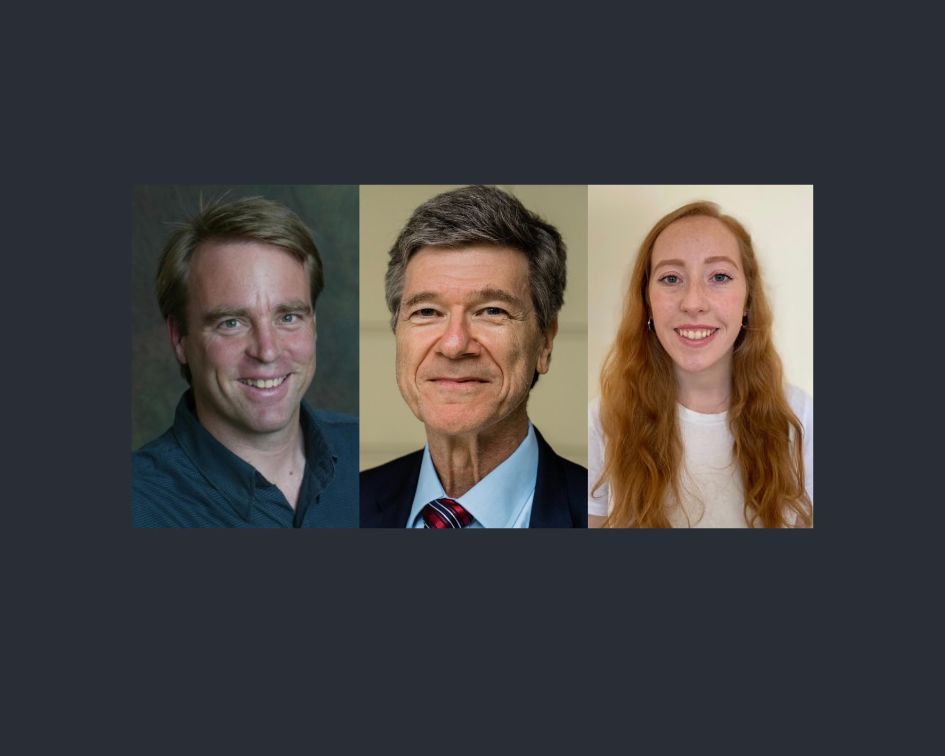
Experts on Sustainable Development Share Why We Should Have Hope
On Monday, January 31st, International House welcomed to its virtual stage Jeffrey D. Sachs, world-renowned economics professor, bestselling author, innovative educator, and global leader in sustainable development, for a candid conversation about sustainability as seen through the lens of politics, business, and civic engagement. In conversation with Sachs was International House Trustee Andy Darrell, the Chief of Strategy, Global Energy and Finance and New York Regional Director for the Environmental Defense Fund (EDF), who also serves on New York City’s Sustainability Advisory Board. This event was part of the new International House Sustainability programming series, made possible through the support of International House alumni and friends.
The conversation revolved around the question: “Why have hope?” The panelists approached the serious topic with brutal honesty, but somehow managed to paint a clear picture of the achievements being made globally, and on many fronts, that are forging a path to a brighter future.
Sachs shared stories from his involvement with the United Nations Sustainable Development Solutions Network as well as his work as Director of the Center for Sustainable Development and the Earth Institute at Columbia University. As Special Advisor to three United Nations Secretaries-General, and his current role as an SDG Advocate under Secretary General António Guterres, Sachs offered a unique insight into how nations are setting goals for sustainability, and how active the community of scientists and engineers has been to innovate solutions across the world. He mentioned developments in wind and solar energy, among others.
“The tools for doing something [about climate change] are getting so good, they’re basically becoming unavoidable,” said Sachs. “We’re moving forward because they’re just more fun to use.”
Darrell offered his perspective from his extensive experience as an advocate working at the intersection of government, finance, and private sectors. He described the roles of finance and business in advancing such tools, and offered examples drawn from his history of developing solutions that combined policy change and private investment to deliver clean energy and minimize pollution in large cities across the world.
“We always think of ‘hope’ as a passive thing, but when combined with tools, it actually has a ‘doing’ element to it.” Darrell said. “I have hope because all the pieces are coming together.”
And while governments could provide infrastructure, Darrell stressed, it is up to individuals to advance the movement.
“We don’t have to wait for government,” he said. “Our voice is one of the most powerful tools we have.”
For attendees, the stories of these successful initiatives and advice from the panelists inspired a strong sense of optimism about the future and what everyday people could do.
Moderating the conversation was current I-House Resident Alexandra Potter, a student from Scotland in the Climate and Society Masters Program at Columbia University, where she also holds a graduate research assistantship at the National Centre for Disaster Preparedness (NCDP) exploring the economic value of disaster resilience. One reassurance she received from the panelists was that the world’s focus on problem-solving, coupled with its increasing need for global, interdisciplinary collaboration, ensured that there would always be work for her.